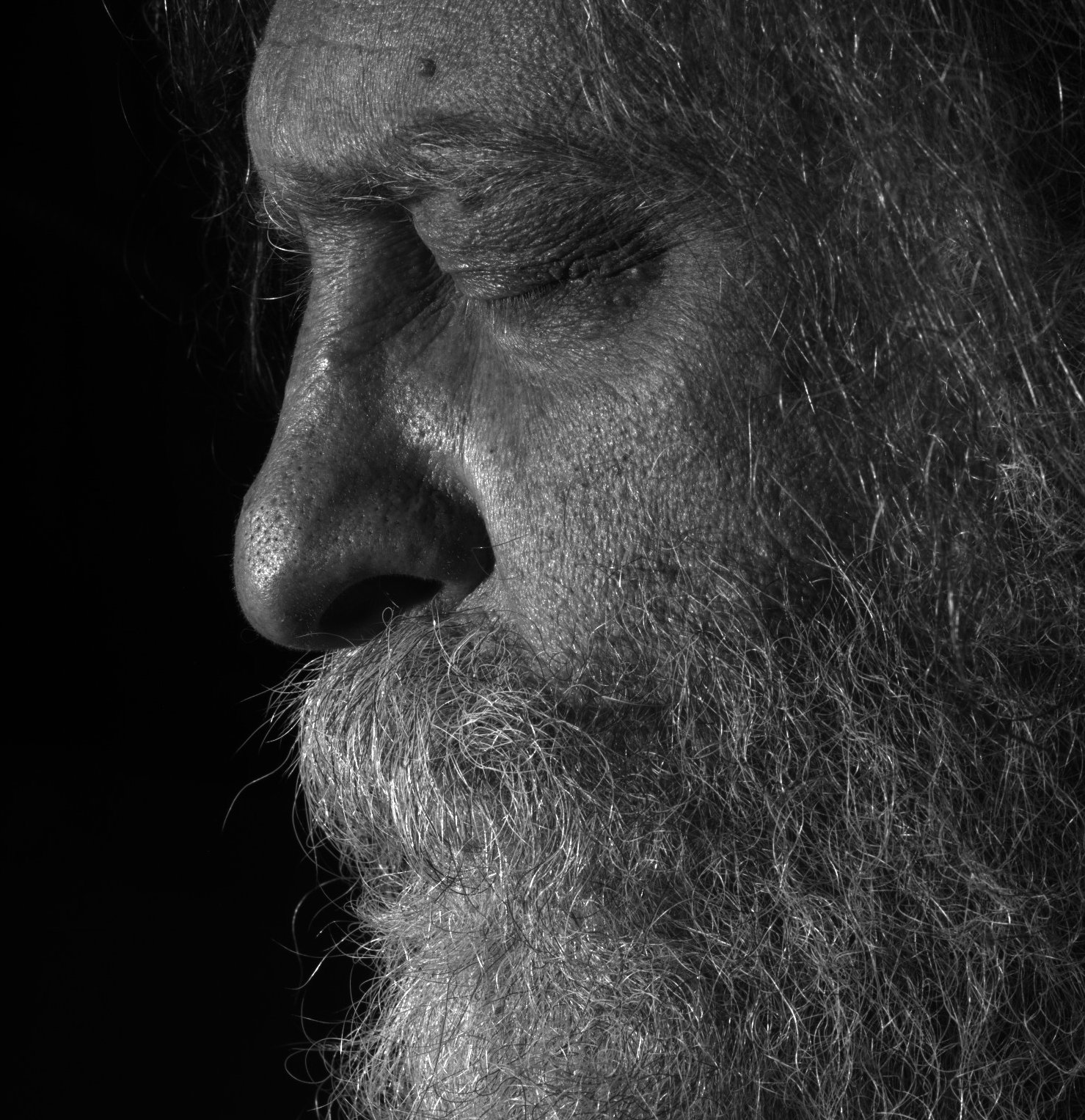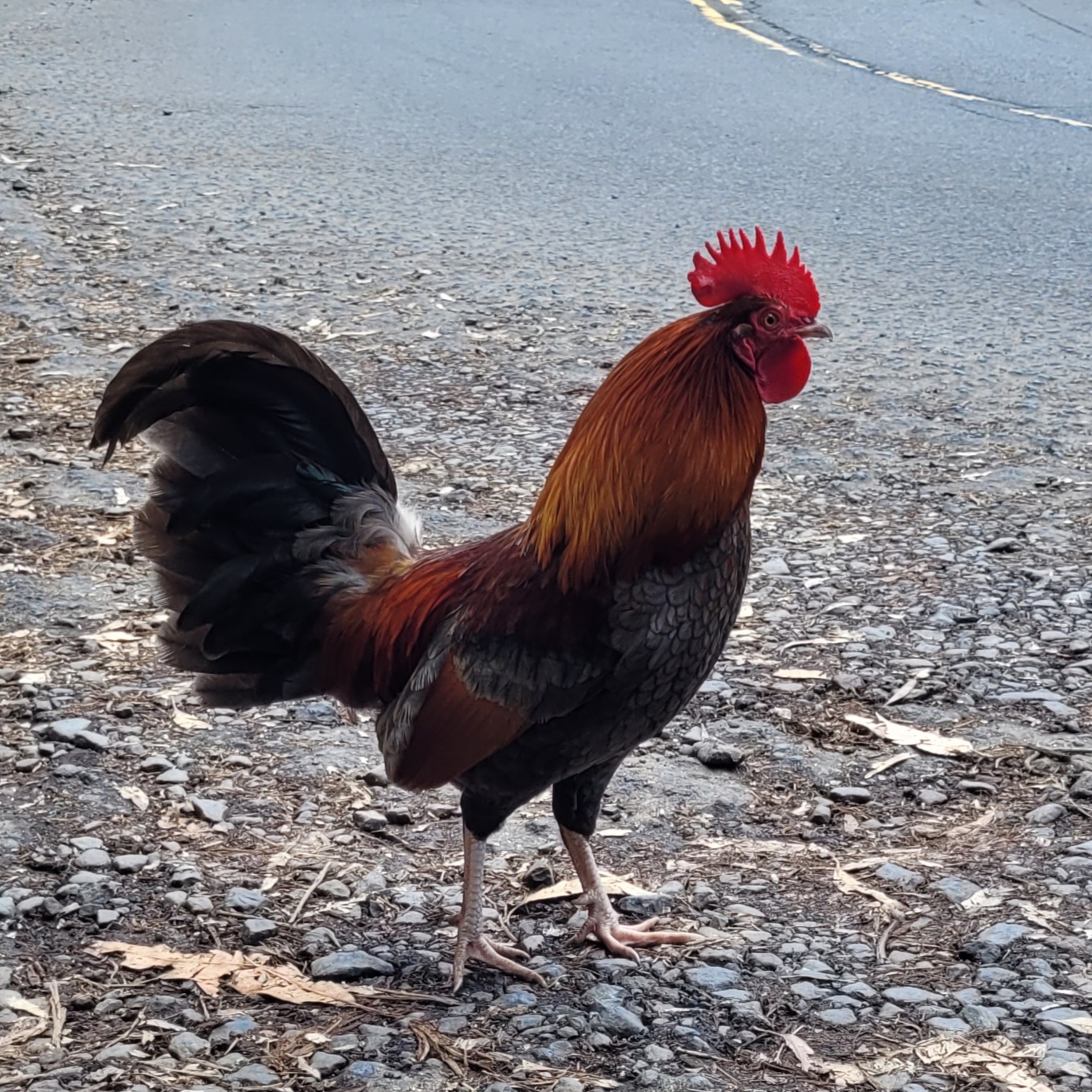Bonus points for articles or links to said facts. I demand rabbit-holes to explore
deleted by creator
My dad lost his TV show when that was cancelled. (He had one of those obscure once-a-month crack-of-dawn talk shows.)
deleted by creator
deleted by creator
Leftist / slightly religious news talk show. He had Cesar Chavez as a guest once.
I’d like to see a return to this, or a return to the media being generally unbiased if not always truthful. Instead I flip between CNN and Fox and try to distil the facts, then research online… tomorrow I’ll do it all over again.
This is still true for the BBC in the UK and all that happens is that anytime the BBC wants to talk about trans issues, they have to also talk about how transphobia is cool, actually.
Fundamentally I find that following media is a fool’s errand. What are you actually learning by doing that, really? I agree that informing oneself on the state of the world and the country is important, but at the end of the day it is impossible to be objective, and even if you and the media were, what good would it be?
I too am sick of both-sides-ism for the same and similar reasons. It’s not the case that each side in every debate is argued in equally good faith, nor that each has equal scientific basis, etc. I think the net effect of a policy like this would just be to entrench the culture of giving any and every blatantly hateful/wrong opposite a legitimizing platform.
Personally, I’d prefer the abandonment of the pretense that media can ever be unbiased, in one way or another. I’d rather media be upfront about its biases, and have journalists be encouraged to try to be as skeptical as possible of their own side (or something like that) while being open about which side is theirs, rather than have “unbiased” and “neutral” news sources, written by people who are humans who therefore do have opinions, that inevitably still do shit like repeatedly post identical transphobic op-eds, or articles with titles like “Locals dismayed over homeless encampment”, and simultaneously claim to be unbiased. That type of title regarding the homeless, as an example, prioritizes the housed locals who are upset (about area cleanliness, sidewalk accessibility, drugs in proximity to their homes, whatever) as being the newsworthy story, and their opinions as being the ones you should take into consideration, rather than prioritizing the fact that a bunch of people - who are also local to that area but not acknowledged/valued as such - are unhoused and living in misery and exposed to temperatures, etc, as being the newsworthy story. Regardless of how you feel about the homeless personally, it’s an article title like that takes a perspective on a situation, privileges one party in the situation over another, but it presents that perspective as ostensibly unbiased and purely factual, and in so doing it just hides its own bias rather than actually eliminating it.
And, in that particular case, I personally believe it encourages the populace as a whole to devalue and dehumanize unsheltered and drug-addicted humans in favor of only caring about whether housed people can see them or not. But if the journalist was able to be upfront with and maybe even explicitly acknowledge their own bias in some standardized way in the article, it might make that bias less invisible and lead people to put more consideration into the matter in general and be less likely to automatically absorb whatever the bias in the article is.
I also just think that truly unbiased, purely factual media is impossible to achieve, and that journalism’s traditional quest to do so is a fool’s errand that historically has not worked out.
I wonder whether/how journalism’s core tenants and cultures might differ between the Anglophone world and other countries in other parts of the world, like South America or Africa. I feel like differences like that could go fairly unnoticed because of the language-barrier - like, how often do Americans or British folks read translated news articles from other languages, and how often do Journalism students in the anglosphere learn about other countries’ home-grown journalistic traditions or methods? I’d be willing to bet the profession of journalism as practiced in the west would tend to almost-exclusively consider only academic articles and philosophies generated by its own cultures and institutions, seeing as that’s how it has tended to go in the sciences and other disciplines.
There have been many separate occasions that some amazing scientific discovery was made in one country, like China or Italy or Greece or wherever, but the anglophone science community didn’t find out about it at all because it wasn’t published in English or in a popular English journal (or, in earlier times, wasn’t talked about amongst anglophone science societies or in scientists’ letters or books). I think I remember reading that Mendel, the Austrian monk who discovered the basics of alleles and the mechanism of genetic variability and inheritance, by way of years upon years of careful and meticulous experiments, went almost entirely unknown as a scientist (until decades after his death, when his work was rediscovered, and when other people discovered the same things independently or replicated his experiments), and that this may have been due in part to the fact that he was Austrian and published and presented only in his language. He also just didn’t do a lot to promote his work, supposedly, but I remember reading that the initial crickets in response to his life’s work rather discouraged him from further promoting it and from further scientific endeavors.
/pardon, several of those paragraphs are a bit run-on and word-salady perhaps, aaaand I’ve gone on several tangents, but I must stop editing this comment now for fear of spending too much time on social media vs the rest of my life.
Replying to my own comment instead of making said comment even longer:
I hope that, for all the problems ChatGPT and co. is introducing to the world, it might sufficiently grease the wheels of translation to make communication between different countries’ scientists and scholars much easier. Imagine if every scientific paper could just be auto-translated, even if imperfectly, well-enough to be easy to read and reasonably understandable, at least enough to indicate where someone might want to dig further.
Granted, this speculation ignores the problem that there are already FAR more scientific articles than any scientist can read even if they look exclusively at those published in their own language. And the replication crisis is still a thing. But still? It would make it easier to find what you’re looking for if you’re searching for studies on some niche topic. And easy translation might at least make the top-tier, most well-respected scientific journals of other countries more accessible and more widely read. Although perhaps with the handful of expensive top-tier journals I suppose there might already be human-provided translations for those, I don’t actually know.
/jesus I am fucking rambling today. Ah well :)
Edit: ditto for history. Easier historical collaboration between countries would be invaluable. Especially with the number of times I’ve seen an article like “ancient ruins discovered in the Amazon!” where the ‘discovery’ turns out to actually have been a really popular spot with the locals for years, and it’s just that the information that it existed never traveled far enough to reach archeologists. Which touches also on the issue of archeology as it exists, with primarily white and western archeologists traveling to other countries to excavate and study and often abscond with their artifacts, being oftentimes part and parcel of the colonial project, but this comment is long enough.
How weird that the BBC never seems to have a republican around when talking about the monarchy.
Well, when they did have it in place the networks hid their dissenting opinions in off hours things same as you said. The rules were very loose, but it also allowed for some public service broadcasts and other local tv shows that wouldn’t have had airtime, rather than pay to produce the alternate opinion which led to some cool local shows and lore.
Reuters is pretty objective I believe
That is my favorite way I have ever heard anyone express that wish.
Some lint for you (accuracy may vary):
Bee family trees, if you follow a queen down through drones and workers and other queens, follow the fibonacci sequence. The fibonacci sequence is also reflected in the structure of spiral seashells. Source: Some book I read about the fibonacci sequence many years ago.
Flamingoes are motherfucking TANKS. Seriously. Their ability to survive in absurdly harsh environments that would kill other animals is wild.
Only female reindeer lose their antlers in wintertime (disclaimer: this may depend on species of reindeer?)
Some guy (Russian I think?), when a computer informed him that nuclear missiles had been fired at his country and he was told to return fire, correctly believed the computer to be bugged and refused to fire the missiles. So uh. Thanks, guy. He went and lived out his life normally and never got appropriate thanks for saving a shitload of people, I think. Source: memory of wikipedia article, may be wrong on some details so really I should be double checking those before repeating them but here you go I’m too tired for that.
Some other guy survived BOTH the Hiroshima and Nagasaki bombs, and lived to old age afterwards. Somehow both the literal worst luck, and the best.
There is a parasite that latches on to ants’ feet that does not harm the ant - in fact, it fully replaces the function of the ant’s foot, including forming a claw to help the ant grab stuff like it would with its actual foot. There is also a similar parasite that replaces a fish’s tongue (yeah I hate it too).
Octpuses only live for like 3 years max, and the females die after laying their eggs. Meanwhile, they are really, really, really smart, like dolphins and parrots and crows. Imagine being that aware and smart, but only living 3 years. It disturbs me.
Uranium glass, which is exactly what it says on the tin - glass made with a teensy bit of uranium in it - glows in the dark in (typically) bright, cartoon acid green.
Whales can and do communicate across vast distances because their calls carry much more easily in water than sound carries in air.
Hammerhead sharks’ heads detect electrical fields, and they use these fields to locate their prey. Run.
The whole alpha/beta/omega wolf pack thing is complete bullshit, retracted even by the person who first popularized it, and he has spent years upon years trying to scrub out that idea he unleashed into pop culture but has been unable to.
Elephants’ feet are very sensitive, able to feel minute vibrations from miles away, and they can communicate with them. Also they do NOT make the thumping sound that is foley’d into nature documentaries - they walk silently. Also, the bottom of their feet looks like swiss cheese and you should not google that if you have tryptophobia.
Stanislav Petrov is the guy who refused to launch the Russian nukes and possibly averted World War 3.
Uranium glass is much more subtle than it sounds. VERY slightly radioactive, and it doesn’t glow. It has an interesting tint to it, and if you shine light through it, it looks intense, but it doesn’t actually glow. (A friend who works with glass gives me any she happens to run across.)
I went down this rabbit hole a couple months ago: birds are classified as dinosaurs. Not “descended from dinosaurs”, actual dinosaurs. Sauce
About 360 million years ago, trees had evolved lignin and cellulose, allowing them to get big. However, no bacteria that could digest these woody substances had yet evolved. In fact, those bacteria would take another 60 million years to arrive. All this time huge trees kept growing, crashing into the swampy ground, and piling up on top of uncounted other trees, getting buried deeper and deeper into the ground. Over millions of years, subjected to the heat and pressure of deep burial, the carbon in these trees was converted into the fossil fuels we know and love today – coal, oil, and natural gas. All the fossil fuels we use were produced during this 60-million year period.
SourceIt all wasn’t swampy. What about upland ecosites? Imagine the wall of dead trees.
A man named Dick Pick invented GIRLS.
Adult wild cats do not meow except in the presence of humans. Even domesticated cats rarely do meow if no human is nearby. It seems cats figure out that we can’t hear the frequencies they normally communicate with and purposefully make themselves heard.
we can’t hear the frequencies they normally communicate with
And… what… are… those? How are they making such sounds? Their mouths certainly aren’t open…
Many Woodpecker species have long tongues, which they use to eat the bugs and such inside trees. When they aren’t using them to eat, the tongue rests around their skulls to help cushion their brains from the impact of pecking trees! :)
Evolution is amazing.
How many woodpeckers ancestors had TBIs before they ‘figured’ that one out.
The FAA banned smoking on all domestic flights in 1990, but that did not stop some entrepreneurs. Twice in 1993 and in 2006, wealthy smoking enthusiasts tried to establish airlines to circumvent the rules using legal loopholes. Both of them, “Smokers Airways” & “SmintAir” (Smokers International Airlines) failed to raise enough capital to purchase an airplane and investors abandoned both projects.
They’re marine animals that are related to starfish, sea urchins and sea cucumbers. They look like floating plants, but they can actually walk and swim through the ocean to find food (plankton).
There is a certain type of CRT display that will vibrate and distort in your vision if you make a fart noise using your tongue and hold it for a few seconds.
I did this repeatedly in elementary school on old Macs.
damn, they really are teaching CRT to elementary schoolers
That’s amazing.
14 year old shovel wishes I knew about this tidbit. I can’t even remember the last time I saw a CRT
Lcd displays on clocks and whatnot do this to me.
Look at one thing, then quickly at another (only moving your eyes). You quite literally were blind for a moment there due to saccadic masking: https://en.m.wikipedia.org/wiki/Saccadic_masking
This is the lint I crave. MOAR
Okay. Ever wonder why pigeons bob their heads? It’s so that they can perceive depth. Animals with front facing eyes like ours can tell how near/far something is based on the angle formed by our eyes (called stereopsis). Pigeons, being side-eyed, don’t have that option, so instead they compare the percieved size of things as they bob. Things that are closer will “grow” more than things that are far away.
Human rib bones can completely grow back if the tissue sheathing them (principally the perichondrium and periosteum) is left intact enough.
Wild!
My favorite patent law case is about two orange juice soda vending companies who both had fake juice displays fighting about whether the one fake juice display violated the patent of the other fake juice display company. The case name is quite literally the base case name in history: Juicy Whip vs Orange Bang. https://www.quimbee.com/cases/juicy-whip-inc-v-orange-bang-inc
got one from back when I was learning C - wanted to be a game developer but it never panned out, anyway, the compiler I was using was a Borland product and in the comments of one of the .h or .c files, I forget which, there was a comment that was… actually I went and looked it up just now so I could get it verbatim. always thought it was interesting:
" 7 Hz is the resonant frequency of a chicken’s skull cavity. This was determined empirically in Australia, where a new factory generating 7-Hz tones was located too close to a chicken ranch: When the factory started up, all the chickens died. Your PC may not be able to emit a 7-Hz tone "
I watched a YouTube video which discussed a similar issue with a pop song. I want to say it was something by Jennifer Lopez (?) which had a part that matched the resonant frequency of the hard drive in a certain laptop model and would cause the hard drive to crash.
edit: just looked it up, it was Janet Jackson’s ‘Rhythm Nation’
Ahh yes Australia’s famous 7Hz tone factory!
Oh man, what a useless tidbit of info. Perfect!!!
Both the US and the UK issued silver “dollar” coins dated 1804.
The US ones weren’t issued until 1834, and then sporadically in the 1850s. Originally they were made for presentation coin sets given to foreign dignitaries. Silver dollars hadn’t been issued since 1804, but the ones issued back then were made with old dies and likely dated 1803. The later issues are likely the result of questionable dealings inside the mint of the time. Any real example is likely valued several hundred thousand USD or more. (https://www.coinworld.com/voices/gerald-tebben/u_s_mint_confiscate.html)
The UK ones were an emergency issue, considered a “token” issued by the Bank of England. They were made by taking widely available Spanish colonial 8-real coins and stamping a new design on to pass as 5 shillings (0.25 pound). These can be had for a couple hundred USD depending on condition. (http://www.coins-of-the-uk.co.uk/fives.html)

















